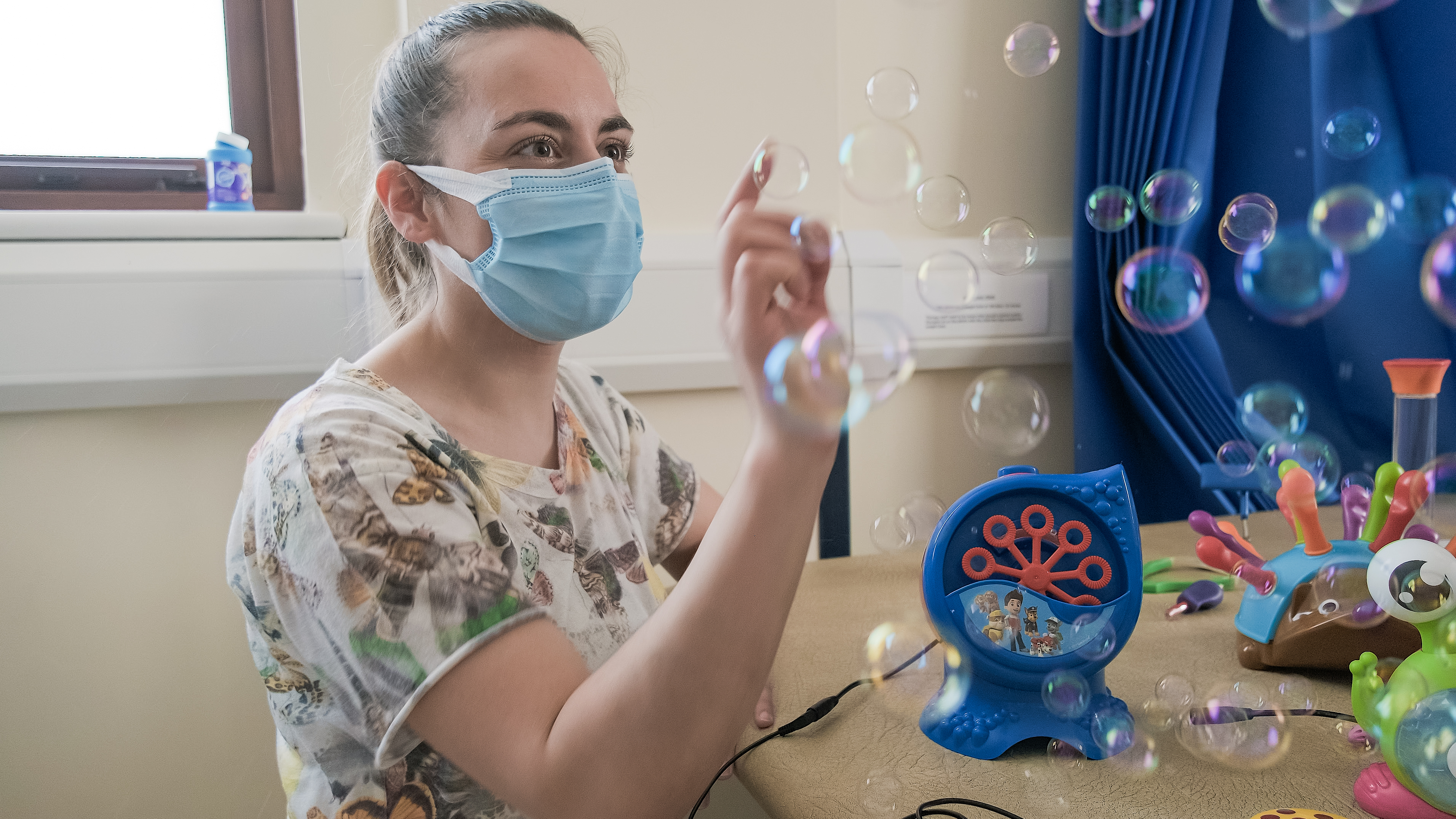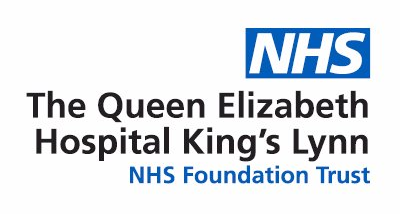Meet our teams
Our expert, friendly, and caring teams go above and beyond to provide the very best care for our patients and their families. Find out more about some of Team QEH, and the vital roles they do, below.
Andreia Ferrera
Children's Occupational Therapist

Andreia is a children’s occupational therapist at QEH, and helps children improve their ability to do everyday tasks if they’re having difficulties. She spoke to us about life at QEH since she joined in 2015.
“Occupational therapists look at how people function day-to-day. At QEH, we support a lot of children who have been diagnosed with a physical disability, like cerebral palsy or muscular dystrophy.
“If you think of a child going to school, for example, my team and I will look at how they will sit at their desk, how they write with their hands, are they able to go to the toilet and so on. The children I see have a disability or illness which impedes their ability to do those sorts of things, and occupational therapy helps and supports them.
“For someone with cerebral palsy, for example, they might not be able to use one of their hands as well as the other. We would treat them to try and integrate that arm better in their daily lives. We would work together on things like putting a coat on, doing zips and buttons up, putting their trousers on. Occupational therapy for adults is similar – we’d look to see how they wash and dress themselves, what help or adaptations they might need following a fall, or surgery for example.
“We’re often aiming to get children to use the affected limb as much as possible and, with children, that can require a lot of patience. Sometimes it can seem that most of my day is spent playing – that’s actually how you get your therapy into their session. You’ve got to try and use your creativity with the toys and tools that you’ve got, to get them to do the activity that you want them to. We get to therapy through playing games – it’s one of the challenges, but I don’t see it that way.
“Because we see children from 6 months to 18 years old, we build up real and long-lasting relationships with each family. Over that time, the family will come to you with specific challenges and problems as their children grow up – it’s incredibly rewarding and obviously as children grow, their needs change.
“Partnership working is vital for us giving each child the best possible care. We work with families, schools, social workers, nurses, physiotherapists, speech and language therapists and many more – a whole range.
“There are different routes into becoming an occupational therapist. We’re starting to look at apprenticeships too, in addition to the more classic route that I took via college and university. You could start by being a therapy assistant and come up the apprenticeship route or do a part-time degree. We have careers events here and you can come and shadow or do work experience with us too.
“It’s a great team – we look out for each other, we have our own WhatsApp group – we’re a small team of occupational therapists and we do lots of joint visits with our physiotherapist colleagues, so we’re always learning from them too. We’ve got a real mix of ages and experiences, and we’re all from different backgrounds. We’re not a bad bunch!”
Find out more about
Find out more about all the roles we have available across QEH here.

